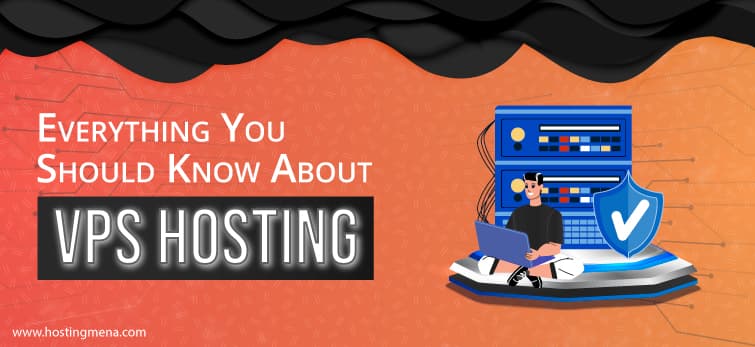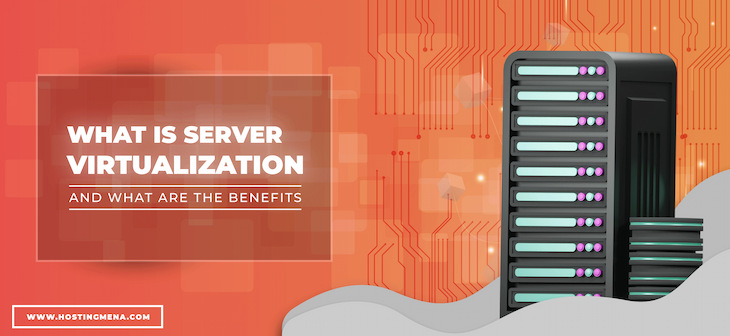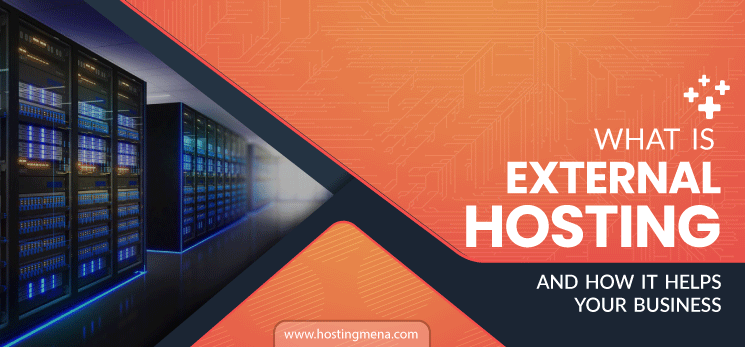What is a VPS Hosting and How Does It Work?
What is VPS Hosting?
VPS is virtual private server hosting that creates a dedicated server environment on a shared server. In other words, a virtual private server picks specific features of dedicated and shared hosting and uses virtualization technology to create virtual servers.
If you still have not grabbed the concept, here is the layman’s description for you. VPS is a virtual machine configured as a physical computer using virtualization technology or software. The server will have the characteristics of an entire server, along with its own operating system, resources, applications, and configurations. You will share a physical server with numerous other users; however, enjoy dedicated resources. So, the sharing will not affect your site or hosting.
How Does VPS Hosting Work?
VPS is installed on a physical machine, operated by a hosting provider, and runs multiple virtual private servers. Every virtualized server works as a dedicated server. The web hosting providers install virtualization software, hypervisor, which creates a virtual layer on top of the operating systems. It creates virtual walls and separates servers into individual sections or servers. The users can install their own operating system and software and use the space however they want.
The users can even ask for more types of hypervisor software instead of only one and divide their physical server into as many virtual systems as they need. It will ensure guaranteed server resources for your websites, like disk space, memory, and CPU cores. With such an arrangement, you can enjoy the perks of dedicated hosting at a much lower cost.
Difference between VPS, Shared, and Dedicated Hosting
Virtual private server hosting is not the only type of hosting available to site owners. There are numerous other options. Shared hosting and dedicated hosting are equally popular. The users also struggle to understand the differences between shared hosting, VPS hosting, and dedicated hosting, as they share a few similarities. Apart from similarities, they have distinct differences too. A deeper comparison of various types of hosting with VPS hosting can help you better understand the whole picture.
a) Shared vs. VPS hosting
Shared hosting is the one in which hosting providers share the same physical server with numerous other website owners. Various websites are hosted on the same server and operating system. Moreover, other resources like CPU, RAM, and hard drive space are also shared.
On the contrary, VPS utilizes virtualization technology to create a private server on the same physical server. Moreover, VPS hosting allows dedicated resources, which distinguishes it from shared hosting.
Shared hosting is quite cheap, thus ideal for new sites and those with static content or low web traffic. Unlike VPS hosting, shared hosting lacks dedicated resources. This can affect site performance and pose security risks which are a few reasons to give up on it.
b) Dedicated vs. VPS hosting
Dedicated hosting is one in which a whole physical server is dedicated to one user or organization. The user enjoys complete control over the resources and allocates them however they want. Such servers are isolated from others, thus offering higher security and privacy.
On the contrary, VPS hosting shares the virtual private server with other users, although they enjoy allocated resources. The allocated resources are quite less than those offered by dedicated hosting, though enough to meet the needs of users.
Dedicated hosting is ideal for high-traffic websites or the ones that need higher security as it does not compromise them. However, it is also the most expensive, so you need to think twice about your affordability before saying yes to it.
Learn more in detail about dedicated vs. VPS hosting.
Different Types of VPS Hosting
Opting for VPS hosting is not just the endpoint to get started with the service. You will be presented with types of virtual private server hosting you can pick from. The main types of VPS are:
- Managed VPS hosting
- Unmanaged VPS hosting
- Semi-managed VPS hosting
You should know the specifications, details, and differences of all to know better which is suitable for you. Here is the description to help you explore that:
1. Managed VPS Hosting
Managed VPS hosting is the one in which the hosting service providers take the load off the shoulders of site owners. They manage the virtual server and ensure it runs smoothly.
The site owners can enjoy technical services like initial server setup, managing regular updates, security patches, monitoring, and automated backups. You do not have to worry about these, as trained and experienced IT professionals will manage them on your behalf.
Managed VPS is a perfect pick if you lack technical skills and expertise or are just short on staff to manage everything meticulously.
2. Unmanaged VPS Hosting
Unmanaged VPS hosting is the type in which the site owners are responsible for installing the operating system. Moreover, you will also take care of numerous other server management aspects.
The major server management aspects include installing software, managing control penal, and handling software updates. You will also be responsible for monitoring security threats, server configuration, maintenance, and managing site backups.
Unmanaged VPS hosting is suitable for you only if you have a technical background and are sure of your expertise. Otherwise, you should not take the risk.
3. Semi-managed VPS Hosting
Semi-managed is another type that offers a middle ground between managed and unmanaged VPS hosting. With this particular type, the users can get core software installation and support along with unmanaged VPS hosting.
In other words, the hosting providers will take care of basic configuration issues, operating systems, hardware, and software. However, the users will be responsible for handling issues like control panel upgrades, virus and spam protection, and external migrations.
Semi-managed VPS hosting is ideal for you if you have a technical background but need an extra as well as expert hand to manage your virtual server better.
Benefits of VPS Hosting for Your Website
Why should you opt for VPS hosting, or what does it hold for you? If you own an established website, these questions will pop up in your head. You would have explored or even experienced shared or dedicated hosting or both. VPS hosting offers the best of shared and dedicated hosting while cutting down on the cons or disadvantages. In short, you can get the best of both types and a few extra perks.
Major benefits you can expect to secure with VPS hosting are:
1. Reliable Performance
Reliable performance is the compelling advantage that attracts most users to VPS hosting. You can get allocated bandwidth and storage while not having to share the server with other sites. VPS hosting specifically prioritizes faster site loading, which also boosts the site’s performance.
2. Growth/Scalability
VPS hosting is highly scalable, and you do not need to worry about growth at all. You can estimate your requirements and opt for resources accordingly. You can increase the size of your resources and secure more as soon as you feel the existing ones are insufficient to fulfill your needs.
3. Value
VPS hosting offers much more value as compared to other types of hosting services. It is not too cheap or expensive but rightly priced. The underlying reason is you will be using the dedicated resources you need and paying for them accordingly. It does not compromise performance or charge extra to provide benefits you might not need. So, it is a perfect choice.
4. Customization
VPS hosting allows high customization, which is the biggest perk. You can customize the server environment however you want. You can opt for the operating system and server application and install any software or configuration you want.
5. Security
VPS hosting ensures higher security which is another major benefit of it. VPS environment and sites on it are isolated even from the ones located on the same physical servers. It strengthens security and ensures there is no disruption in it. You can also install or implement other security protocols if you face any threat.
6. Data Protection
Data protection is another notable benefit of VPS hosting. The users have freedom and control over their servers to manage them however they want. Moreover, they enjoy increased storage, which allows them to create backups of their data. They can even opt for automated daily backups with managed VPS hosting and ensure data protection.
7. Control
VPS hosting offers great control of the server, which is another notable benefit. You can manage and run the server however you want and control all activities taking place over it. Most importantly, you can plan installations and restart the system to complete the process without being concerned about others sharing the server with you.
8. Dedicated Resources
VPS hosting provides access to dedicated resources, which is its biggest pro of it. You can enjoy higher storage space, RAM, and CPU, which will cater to all your need. You can even host multiple sites on the same server if you want and utilize the dedicated resources to the fullest.
Recommended: What is Server Virtualization and Its Benefits
Who Needs VPS Hosting?
Anyone who wants secure, reliable, and affordable hosting service along with dedicated resources can opt for VPS hosting. Such a hosting type is ideal for high-traffic websites. Here are a few types of sites and services which specifically need VPS hosting:
- Ecommerce Websites
- Gaming Websites
- Software-as-a-Service (SaaS) Deployments
- Web Apps
- News Websites
- Corporate Websites
- Educational Websites
- Community Websites
- Bloggers, Startups & SMEs
When is The Right Time to Switch to VPS Hosting?
Generally, websites move from one hosting type to VPS hosting when they grow out of their existing setup and resources. Identifying your site has grown out of the resources may be tricky if you lack technical expertise. Looking for tell-tale signs and indications can help you know if it is the right time to switch or not. You can also contact and consult our experts at Hosting MENA to learn the details.
Fret not if you do not know the signs. Here are some, but you must switch to VPS hosting once you spot them:
1. Worried About Security
If you are worried about the security of your site, it is the perfect time to switch to VPS hosting. You should not take the matter lightly if your or another site on your server faces security threats or breaches and move to VPS hosting. Moreover, if you are looking for advanced monitoring and smoothly managing online payments, VPS hosting should be your priority.
2. High Traffic Volumes
High traffic volume is another important scenario when you should switch to VPS hosting. Most websites opt for shared hosting in the initial stages to keep costs minimal, which is perfectly fine. You should consider hosting move seriously as soon as your site grows and attracts high traffic. Delay in it can cause low site loading speed or server crashes, which is not good.
3. Website is Consistently Running Slowly
When your website is consistently running slowly, it is a sign you should move to VPS hosting. Sites grow with time. You will keep adding more content, which will use more RAM space. It will attract more website traffic, putting more load on the server. The server will fail to respond to all requests on time. Switching to VPS hosting will fix these issues and allow faster loading.
4. Need to Install Custom Software
Most hosting types offer specific operating systems and software installations. The situation might not be ideal for you, and you may need to install custom software or operating system. For that, you will need more control over the server, which is only offered by VPS hosting. So, switching to VPS hosting is the perfect choice and solution in such a case.
5. Server Errors
Frequent server errors and downtimes are another sign and indication you should switch to VPS hosting. The hosting service provider might be able to solve the issue and ensure the server is up in a limited time. However, during the time it is down, you will lose significant site traffic. It will negatively impact the image and reputation of your site, so you should not put up with this disgrace.
6. Creating Isolated Development Environments
You will need to switch to VPS hosting if you want to create isolated development environments. Such a scenario requires more control of the server and resources, which is impossible without virtual private servers. Moreover, it will ensure you can use the isolated development environment however you want without worrying about disrupting other sites.
7. Special Operating System Needs
If you have special operating system needs, and the hosting service cannot cater to them, it is a sign to switch to VPS hosting. With VPS hosting, you will get the freedom to install software or customize and optimize the operating system according to your needs and requirements. If you feel confined with your existing hosting, switch to VPS hosting to avail more benefits.
Other scenarios in which you can consider moving to VPS hosting include;
- Need better privacy
- Scale down from dedicated hosting
- Hosting multiple sites
- Upgrade from shared hosting
Do I Need VPS Hosting?
VPS hosting is not for everyone. It is all the more reason to question whether you need VPS hosting. The answer is if your business and website are expanding and the existing hosting plan is not enough; you need VPS hosting. Besides this, exploring when is the right time to switch to VPS hosting will resolve all your concerns and queries. You can even contact and consult our reliable VPS hosting company to discuss and decide if you really need it or not.
How Do I Pick the Right VPS Hosting Provider?
Picking a VPS hosting service provider can be a tough ordeal if you lack technical knowledge and insights. Sticking to the recommendations of other site owners might not offer much help as they will guide according to their expertise. The suggestions can vary from your needs and requirements and offer little support. Consulting expert services while spotting the sign of a good VPS host can help pick the best.
Here are the major signs of a good VPS hosting provider:
- High Server Uptime
- Managed vs. Unmanaged VPS
- High Speed
- Server Security
- Cost Effective
- Reliable Customer Support
- Automated Backup
- Higher Scalability
- DDoS Attack Protection
- Resource management
VPS Hosting with Hosting MENA!
Hosting MENA supports the ideology that there is no one-size-fits-all solution when it comes to web hosting. Instead of a fixed VPS hosting plan, you will get a customized one that caters to the specific needs of your website. Hosting MENA will help you make the right VPS hosting decision according to your precise needs and requirements. Get in touch and talk to our experts to get the best VPS hosting services for your site and grow your business with Hosting MENA.
Frequently Asked Questions
Do you still have queries and concerns? Going through these frequently asked questions about VPS hosting may resolve them.
1. What does VPS stand for?
VPS stands for Virtual Private Server, and it is often used in the context of VPS hosting. It should not be confused with VPN (Virtual Private Network), which is a totally different concept.
2. What is VPS Hosting?
VPS hosting is the type of hosting that offers dedicated private resources on a shared server using virtualization technologies. Virtualization technology splits the bigger and more powerful server into multiple virtual servers, which are reserved for single users and their resources.
3. What is VPS used for?
VPS is mainly used to host websites with a limited workload. However, business organizations also use VPS for:
- Hosting email
- Databases
- cPanel hosting
- Scalable cloud infrastructure
- Live streaming events
- Store business data
- Virtual workstations for remote employees
4. What is the difference between VPS hosting and cloud hosting?
VPS hosting and cloud hosting are two different concepts. VPS denotes a virtual private server in which websites are hosted on a single physical server. On the contrary, cloud hosting denotes a cluster of physical servers located in the cloud, which can be accessed virtually.
5. What are the benefits of using VPS hosting?
Using or switching to a VPS host will help you secure numerous benefits. The most notable of them are; more storage space, increased speed, stable hosting, and ease of managing backups.
6. How much does a VPS cost?
The cost of VPS depends on the number of resources you are utilizing, as well as managed or unmanaged service and other acquired features. Compared with other hosting plans, you will pay a little more than shared hosting but less than dedicated hosting.
7. Can I use my VPS as a VPN?
Most people mistakenly believe they can use VPS as a VPN, but you cannot. Instead, you can use VPS to create a VPN. It will not be too easy, and you must follow proper installation methods and setups to operate VPN through VPS.
8. Does a VPS hide your location?
A VPS, which is a virtual private server, does not hide the location of the server. Its IP address is public and can be easily traced. VPS is often confused with VPN (a virtual private network), which hides the location of the users.
9. How many visitors can VPS handle?
It is difficult to tell a definite number of visitors a VPS can handle, as several factors play a vital role in this regard. The most notable among them are; the allocated resources, the number of requests per page load, types of requests, time to handle each request, simultaneous visitors, and the web server.
10. How many sites can you host on a VPS?
VPS does not come with a restriction on hosting a specific number of sites. It is only up to you, and you can host as many sites as you want on your virtual private server. However, you will have to allocate enough resources to all sites and manage disk space efficiently.
If you require additional help with VPS hosting, please do not hesitate to reach out to us.






